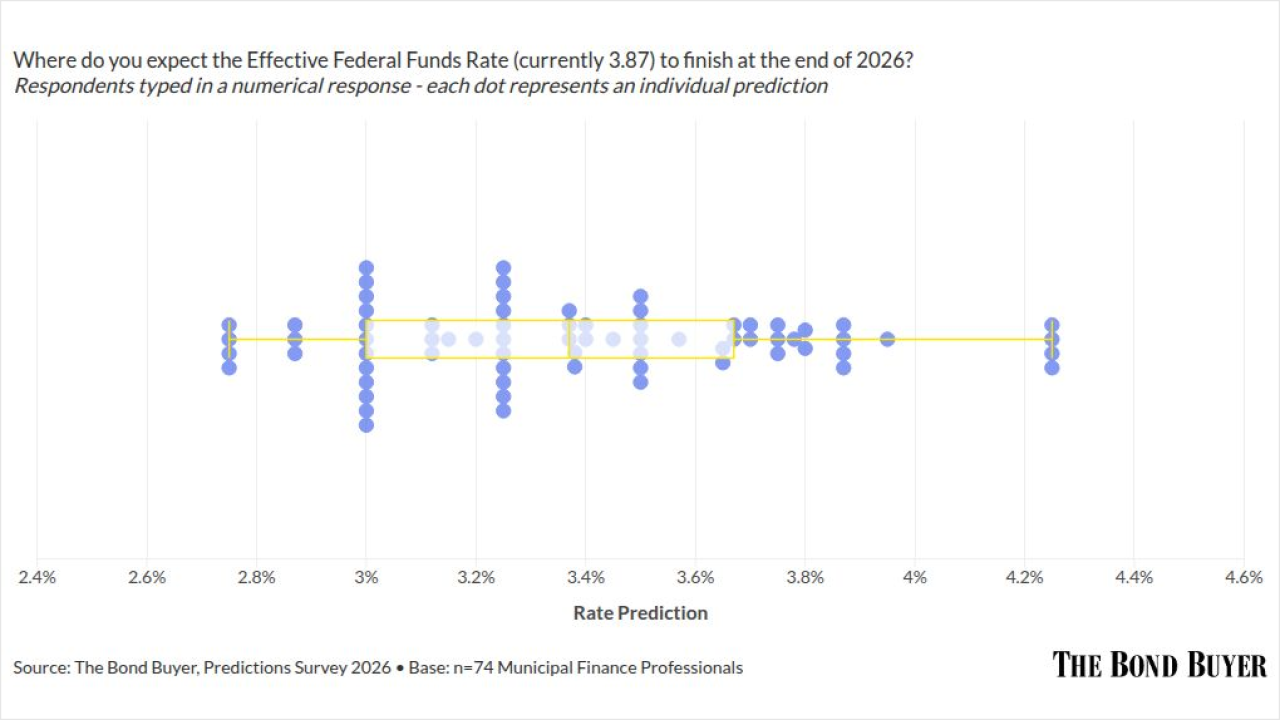
Beth Israel Lahey Health, one of the largest health networks in Massachusetts, is taking a big swing on a new hospital.
The health system secured a partnership with the prestigious Dana-Farber Cancer Institute to build a cancer center in Boston. But it's financing that win with a significant jump in debt. The billion-dollar deal hits the markets on Tuesday.
The deal is made up of Series N — tax-exempt fixed-rate and put bonds issued through the Massachusetts Development Finance Agency — and Series O, which is taxable and will be issued by Beth Israel Deaconess Medical Center, Inc.
Goldman Sachs and BofA Securities are lead managers for both series, with J.P. Morgan and Morgan Stanley as co-managers. PFM is municipal advisor. Hinckley Allan is the counsel for the tax-exempt bonds and Ropes & Gray is counsel for the taxables.
Both series are rated A3 with a stable outlook by Moody's Ratings and A with a negative outlook by S&P Global Ratings.
Series N is $930 million of revenue bonds, with three sub-series. Series N-1, $572 million, will initially be issued in the fixed mode, according to the preliminary official statement. Series N-2 and N-3 are both $175 million.
Around $500 million of this series will finance BILH's portion of the cancer hospital. The remainder will finance various capital projects and refund series H and F-1 bonds, pending market conditions, according to an online investor presentation about the deal.
Series O is $180 million of bonds with 5-to-10-year bullet maturities. BILH will use the proceeds to refinance outstanding taxable commercial paper and for general corporate purposes
"As part of the overall plan of finance, Beth Israel will be expanding its taxable commercial paper program from $200 million to $300 million," Rondy Jennings, managing director at Goldman Sachs, said in the investor presentation.
Healthcare systems access liquidity through lines of credit with banks or commercial paper, S&P analyst Cynthia Keller said.
"Right now, the commercial paper is more affordable," Keller said. "So we are seeing a lot of our healthcare clients either establish commercial paper programs or upsize the amount that they're allowed to draw on through the commercial paper programs."
The deal marks a substantial increase in volume for BILH. Prior to this deal, BILH's biggest issuance in a year was $500 million in 2021. Last year, the health system only issued $200 million of CP notes.
This financing was driven by the partnership with Dana-Farber, BILH executives said in the investor presentation.
The Dana-Farber Cancer Institute had a decades-long affiliation with Mass General Brigham, a different health system in the region. It

The hospital will be a partnership between Dana-Farber Cancer Institute, Beth Israel Deaconess Medical Center and Harvard Medical Faculty Physicians at BIDMC. Dana-Farber calls the facility "the region's only dedicated, free-standing cancer hospital."
Massachusetts Governor Maura Healey praised the new hospital in an April
"Dana-Farber Cancer Institute is a jewel in our state and our nation," Healey said. "We are proud that Dana-Farber will be moving forward with Beth Israel Lahey Health system to build a new state-of-the-art facility—the future of cancer treatment and research—right here in Massachusetts."
A partnership with Dana-Farber is highly coveted, Keller said. Dana-Farber serves medical oncology patients, but doesn't perform any surgeries. Currently, most of their surgeries happen at Mass General Brigham and Women's Hospital, but that could change once the new hospital is opened.
It's still unclear how lucrative the agreement will be for BILH, Keller said.
The health system's revenue and total patient volume have been on an upward trajectory, the same as many healthcare providers in Eastern Massachusetts, Keller said.
"There has been a strong trend of improvement, and their internal performance is much better than it's been the past several years," Keller said.
But the national environment is introducing uncertainties for BILH.
"The biggest challenge for them, and really industry-wide, is inflation, both in terms of the salary inflation that we've seen the last couple of years, and supply inflation with tariffs," Keller said.
BILH has a decent number of patients on Medicare and Medicaid, Keller said, which constrained the system's revenue growth even before the
Beth Israel has an affiliation with Harvard University, which is
S&P's negative outlook on BILH is due in large part to the magnitude of this issuance, according to Keller.
"Despite a proposed bond issuance that will increase total debt by roughly 40%, pro-forma debt-to-operating revenue will remain below 30%, reflecting BILH's currently low debt burden," Moody's analysts wrote in their rating report. "Although the substantial impacts of this partnership are expected to take several years to fully materialize, the increased debt will be manageable."
In evaluating the credit, Keller tried to determine whether the benefits of the partnership with Dana-Farber would outweigh Beth Israel's higher leverage.
"It's a lot of debt, a lot of leverage to their balance sheet. But what are the benefits going to be of this new affiliation agreement?" Keller said. "And we don't know right now."





